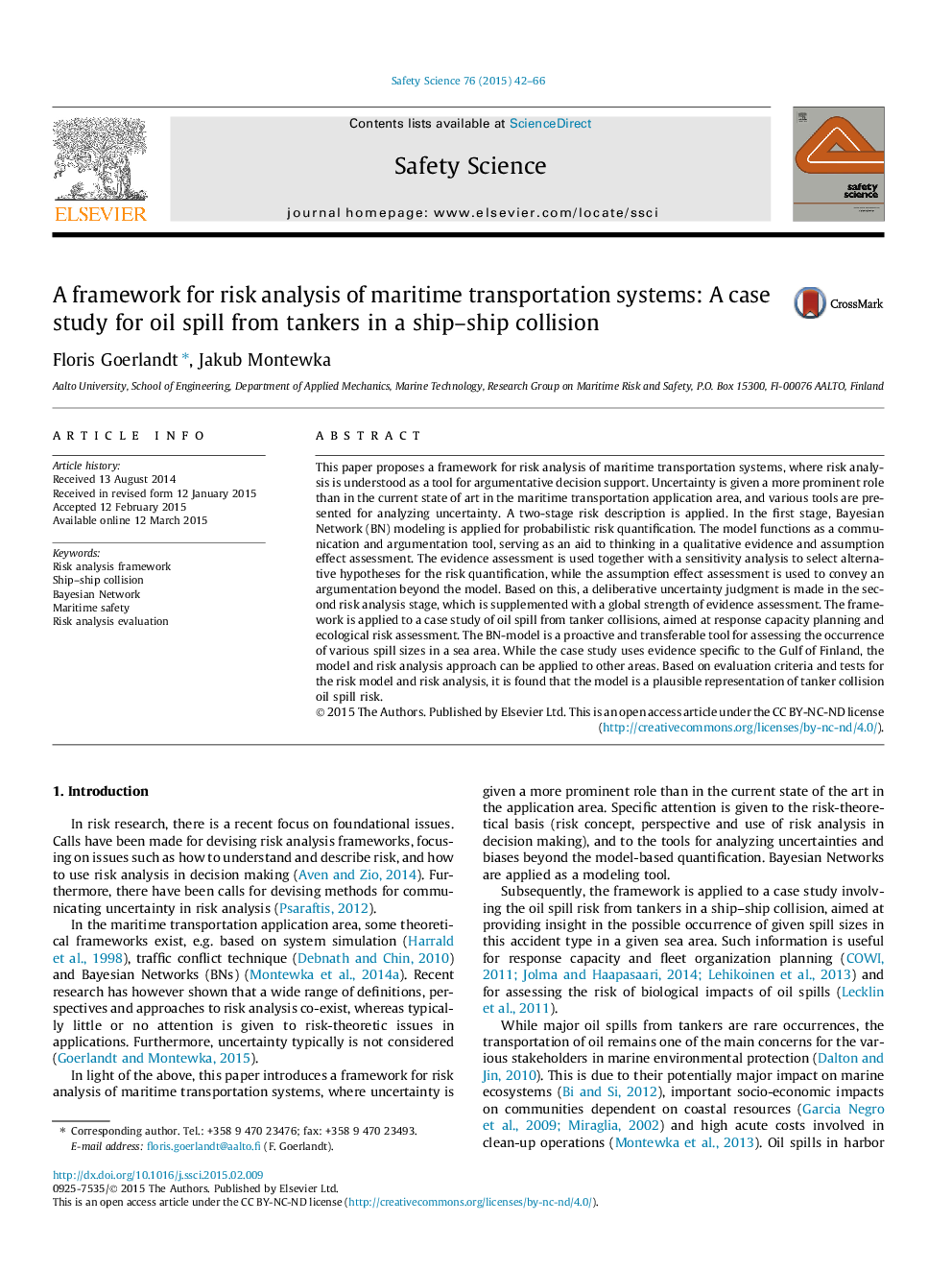| Article ID | Journal | Published Year | Pages | File Type |
|---|---|---|---|---|
| 6975815 | Safety Science | 2015 | 25 Pages |
Abstract
This paper proposes a framework for risk analysis of maritime transportation systems, where risk analysis is understood as a tool for argumentative decision support. Uncertainty is given a more prominent role than in the current state of art in the maritime transportation application area, and various tools are presented for analyzing uncertainty. A two-stage risk description is applied. In the first stage, Bayesian Network (BN) modeling is applied for probabilistic risk quantification. The model functions as a communication and argumentation tool, serving as an aid to thinking in a qualitative evidence and assumption effect assessment. The evidence assessment is used together with a sensitivity analysis to select alternative hypotheses for the risk quantification, while the assumption effect assessment is used to convey an argumentation beyond the model. Based on this, a deliberative uncertainty judgment is made in the second risk analysis stage, which is supplemented with a global strength of evidence assessment. The framework is applied to a case study of oil spill from tanker collisions, aimed at response capacity planning and ecological risk assessment. The BN-model is a proactive and transferable tool for assessing the occurrence of various spill sizes in a sea area. While the case study uses evidence specific to the Gulf of Finland, the model and risk analysis approach can be applied to other areas. Based on evaluation criteria and tests for the risk model and risk analysis, it is found that the model is a plausible representation of tanker collision oil spill risk.
Related Topics
Physical Sciences and Engineering
Chemical Engineering
Chemical Health and Safety
Authors
Floris Goerlandt, Jakub Montewka,
